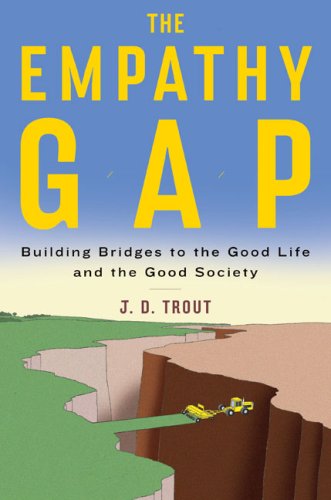Empathy and Morality "Hardwired" in Children
 Last summer researchers at the University of Chicago released the results of a study that suggests that morality and empathy are "hardwired" in children. The researchers had a group of boys and girls look at video of people being kind to each other, being hurt accidentally, or being hurt intentionally. They also monitored the kids' reactions with a functional MRI. What they found is that different parts of the brain were activated depending on what the kids were viewing. Specific brain areas were activated when the kids viewed someone being accidentally hurt. What was particularly interesting is that additional areas of the brain were activated when kids viewed someone being hurt intentionally. This suggests that kids are hardwired for not only empathy, but also for morality. That is, while they expected to see a consistent brain activation pattern for empathy (i.e., when kids watched someone being accidentally injured), they did not expect that when the kids viewed a person being intentionally hurt, additional areas of the brain would be activated. The researchers speculate that they may have found parts of the brain that deal with moral judgements. They also feel that this information may one day prove useful in understanding and treating people who appear to lack empathy and morality, for example, people with anti-social personalities or bullies.
You can read more about the University of Chicago study here.
Last summer researchers at the University of Chicago released the results of a study that suggests that morality and empathy are "hardwired" in children. The researchers had a group of boys and girls look at video of people being kind to each other, being hurt accidentally, or being hurt intentionally. They also monitored the kids' reactions with a functional MRI. What they found is that different parts of the brain were activated depending on what the kids were viewing. Specific brain areas were activated when the kids viewed someone being accidentally hurt. What was particularly interesting is that additional areas of the brain were activated when kids viewed someone being hurt intentionally. This suggests that kids are hardwired for not only empathy, but also for morality. That is, while they expected to see a consistent brain activation pattern for empathy (i.e., when kids watched someone being accidentally injured), they did not expect that when the kids viewed a person being intentionally hurt, additional areas of the brain would be activated. The researchers speculate that they may have found parts of the brain that deal with moral judgements. They also feel that this information may one day prove useful in understanding and treating people who appear to lack empathy and morality, for example, people with anti-social personalities or bullies.
You can read more about the University of Chicago study here.
Our ability to empathize with others affects the quality of our relationships. It would be great if we could somehow introduce a medication that would allow someone to be more empathic or ethical. The problem is that unlike the rudimentary controlled world of the laboratory, real life human interactions are very complex and personal interests can make moral judgements very subjective. For instance, would it be immoral to steal medicine from a pharmacy if you had no money and your baby had a potentially fatal illness? Morality here can be very subjective. Similarly, if you witnessed someone that hurt you in the recent past being intentionally hurt by someone else, would the "empathy centres" in your brain still be activated in the same way? Writer J. D. Trout’s latest book, The Empathy Gap refutes the "hardwired" understanding of empathy and focuses on the complex and changing ways we either empathize or don't empathize with one another. He also believes that we should gear public policy to encourage more empathy.
Tell us what you think. Write us a comment!
Vote for The Family Anatomy Podcast at Podcast Alley and for the blog at Blogger’s Choice!
Note: Posts on Family Anatomy are for education only. If you need to talk to someone about family or mental health issues, you can get a referral from your family doctor.
